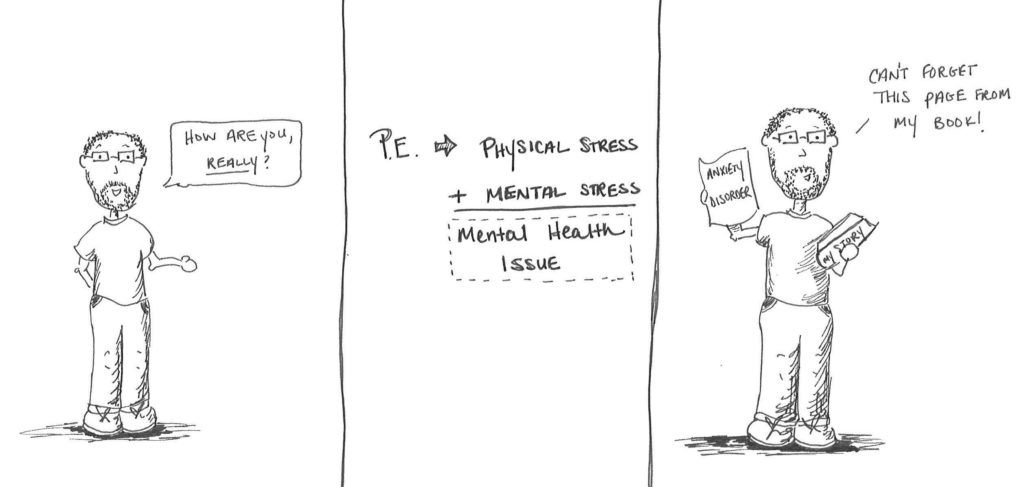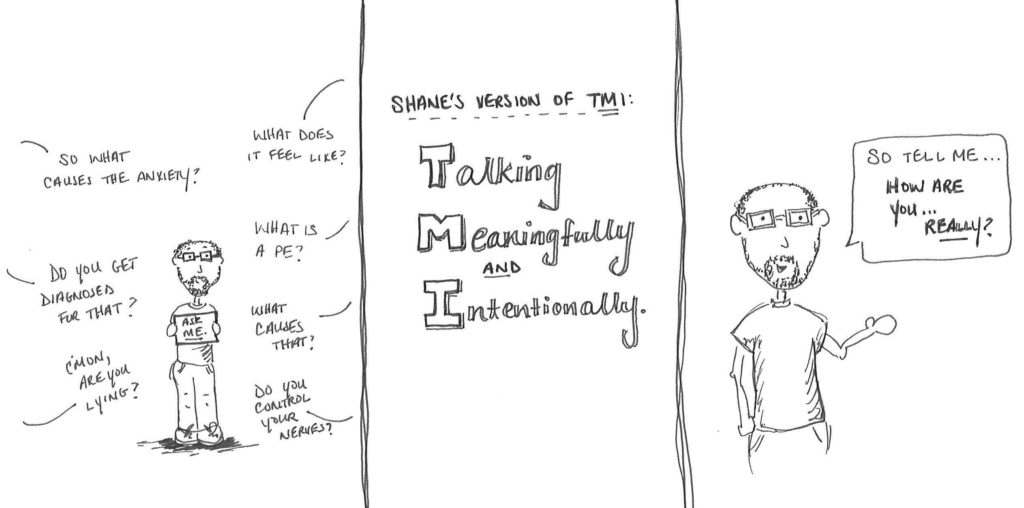by Shane Cadden
I believe prioritizing and practicing an authentic ethic of care with students and staff makes me professionally successful because it makes me credible. I’ve always been the advocate for being your true self and the person who has appropriate but authentic dialogue around the question, “How are you, really?” I never thought that enhancing this authentic dialogue could have resulted from a crisis that happened to me. That is what happened one particular summer during the Housing and Residence Life training craze when I nearly died from a pulmonary embolism (PE), a blood clot in my lung.
There was no rhyme or reason to this blood clot; it just happened. I could have died on a random Saturday evening, and I had absolutely zero control. In the weeks and months ahead, the response of my brain and body showed their displeasure with heightened anxiety and panic attacks. I developed a mental health scare in the form of an anxiety disorder I had never seen the likes of before.

In the year or two following this incident, many professional and paraprofessional staff consistently asked about my own healing process. I could have never included the part about the anxiety and panic attacks that developed from having no control over nearly dying in my thirties. However, it would not have been authentic to me and to all the other individuals who were practicing their own ethic of care had I not told the real experience. The mortality and mental health bell rang true for some of them as well, and we apparently had ourselves many teachable moments.
Never known for ducking the hard questions, I took them on as they came. I answered each person as honestly as I knew how because, whether it came from the gossip to know what happened or the heartfelt fear for many that I almost died, either way it was an opportunity to be genuine while talking about the significance of physical and mental health. I am hardly a fan of the well known TMI, but I do believe greatly in my own version, Talking Meaningfully and Intentionally. In this case, it was about making your physical and mental health needs the priority they should be, no matter one’s age. One day I was a happy, healthy, and hopeful 30-something, and then within minutes each of those states were altered.

I am confident that the staff I worked with already knew I valued them and every part of their well-being, including their mental health. This life event thankfully added to the credibility I suppose. Not only was “How are you, really?” being asked in what seemed like a more intentional manner by others, I found so many more staff who grew increasingly authentic when I continued to ask it of them.Their willingness to be open and receptive about their own physical and mental health needs in how they were was significant. I’m glad to say that from one horrible and scary time in my life I still found a way to care, while at the same time learning to better receive care from others.
*I would be remiss if I did not say that there are way too many people to recognize who cared for me during this time period, but you are not only not forgotten, you know I’m always still here to ask “How are you, really?”
Originally posted at the Student Affairs Collective on May 15, 2014.
